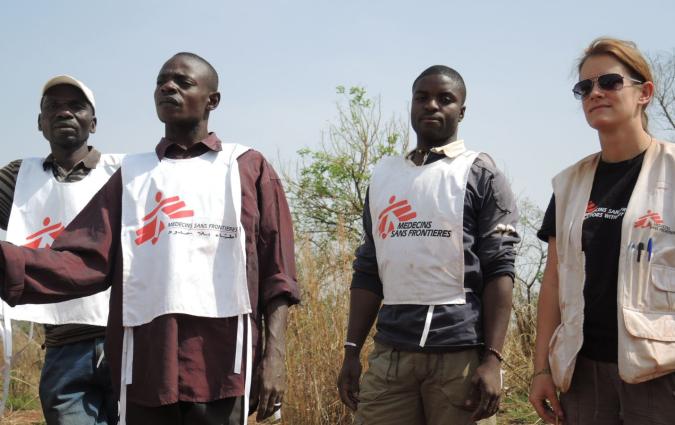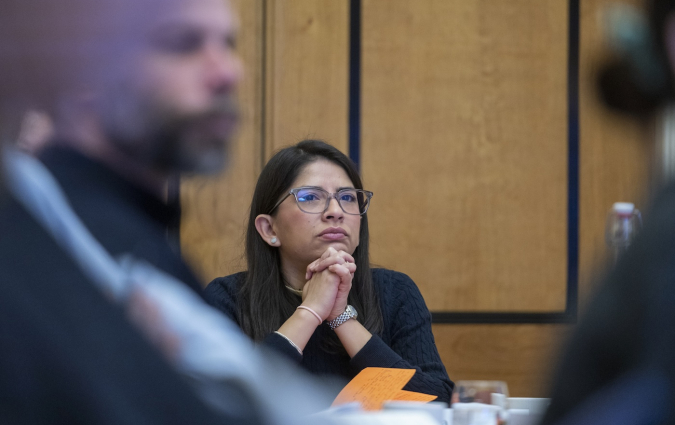Reporters face unique mental health risks in cross-border investigations. A new piece looks at how to address them

From uncovering the shady financial dealings of the world’s elite, to exposing human rights abuses around the world, cross-border investigations could be seen as one of the purest forms of journalism. Investigations such as the Panama Papers, the Paradise Papers and Offshore Leaks have brought to light details which its subjects would prefer to remain hidden, seeking to make positive change around an issue through heightened public awareness and forcing the hand of authorities to take action. They have led to fines, prison sentences, seizure of property and even the toppling of politicians.
Behind these investigations can be hundreds of reporters who pore over the thousands of documents and files, often obtained by huge data leaks, to produce stories for public consumption. These journalists often face a unique set of risks to their mental wellbeing. Writer Belle de Jong spent several months alongside co-author Johana Kotišová, an expert in journalist safety and mental well-being, talking to reporters who have been involved in cross-border investigations in Europe to understand these challenges and identify solutions. The result is an academic study published in Journalism. Below she discusses this research, the findings and her personal motivations for exploring this topic.
Q. The mental health toll on journalists is unfortunately nothing new. While it's thankfully getting more attention, what made you want to focus on the mental health consequences of cross-border investigative journalism?
A. I moved to Malta three weeks before investigative journalist Daphne Caruana Galizia was assassinated with a car bomb. Known for her work on the Panama Papers, she reported on government corruption, nepotism and money laundering.
At the time of her death, she faced 48 lawsuits. She had dealt with intimidation, death threats, and attacks on her family, including arson and the killing of their dog. Her life was made unbearable long before her murder.
Her work inspired me to pursue journalism. One of my most notable articles was about my hospitalisation in Malta’s infamous psychiatric hospital, which gained national attention and led me to become a vocal mental health advocate.
Combining my passions for international journalism and mental health, I pursued a master’s in European journalism in Brussels, where I had the privilege of working with researcher Johana Kotišová, an expert in emotional labour in journalism. I focused on cross-border investigations like the Panama Papers, LuxLeaks and Malta Files, in honour of Daphne Caruana Galizia’s work.
Q. What are some of the specific risks to mental well-being faced by journalists working on cross-border investigations that are perhaps not experienced to the same degree as other journalists?
A. Investigative journalists in cross-border collaborations confront powerful entities, which often employ intimidation tactics to undermine their efforts. The title of the study, “The goal is to make you weaker”, as one journalist put it, refers to those tactics.
A major threat is SLAPPs (Strategic Lawsuits Against Public Participation), lawsuits that aim to drain journalists’ resources and morale rather than win in court. The international scope of these investigations also adds stress through time zone differences, remote work, and cultural conflicts.
While all journalists face financial challenges, investigative freelancers are particularly burdened as these projects often lack organisational funding, meaning they have to manage the added strain of funding their work.
Q. How international in scope was your study and did you identify issues that were perhaps more common to journalists in some parts of Europe than others?
A. Our study focuses on Europe, where my expertise and experience lie. While conditions for investigative journalists are more dire in other parts of the world, those regions require nuanced attention from local experts.
However, even within Europe, the inequalities are striking. One journalist, for example, was sued for an investigation for which their colleagues in other countries won awards.
The protection of journalists varies greatly between regions. While countries like Denmark and the Netherlands offer strong safeguards, others – particularly in the Balkans, Eastern, and Southern Europe – leave journalists exposed to serious risks. This lack of protection normalises greater threats against journalists, deepening divides and perpetuating inequalities across the continent.
Q. What are some of the ways that these journalists try to mitigate these mental health risks themselves?
A. Journalists often view the hardships they face as an inherent part of the profession, stating that tough conditions are “just part of the job”. Many develop personal coping mechanisms, with some downplaying the risks involved. As one journalist put it: “We don’t live in Russia… We live in a democracy, and it’s not so dangerous.” This type of minimisation helps journalists distance themselves from the emotional impact of their work.
Existing research shows that denial and avoidance are common coping strategies. For example, after the murder of Slovak journalist Ján Kuciak, many of his colleagues coped by throwing themselves into work. Investigative reporters also tend to embrace anger and emotion as a powerful motivating force.
In terms of self-care, some journalists stressed the importance of talking openly about their mental health with colleagues, friends, and family, while others bond through dark humour. In-person meetings and conferences, though often informal and alcohol-fuelled, help create a sense of camaraderie and solidarity.
Unfortunately, access to professional support like therapy is still rare, and taking breaks is a luxury for those who can financially afford to.
Q. Although you look at mental health risks, is there anything about the nature cross-border investigations that is a benefit those working on them? Their collaborative nature suggests they would offer networks of support.
A. A quarter of the journalists I interviewed emphasised the importance of mutual support in cross-border collaborations. Unlike more solitary forms of journalism, these projects offer dialogue, mentorship, and emotional support, with many describing their teams as a “family”. However, they also noted that the remote nature of these collaborations can make the connections feel less intimate.
While helpful, this is not enough to counter the severe threats and dangers investigative journalists often face. Most still rely on individual coping strategies, leaving many systemic challenges to be faced alone.
Q. Is there more that newsrooms could be doing to protect their staff? What about freelancers who don’t have institutional support?
A. Newsrooms can do more to protect their staff by offering mental health support, fostering open discussions about well-being, and promoting work-life balance through flexible schedules and reduced workloads to prevent burnout. One key measure journalists mentioned is having a good editor they can rely on for guidance and support. Additionally, providing clear protocols for legal assistance and safety measures ensures that journalists are protected.
However, stronger legal frameworks are essential to ensure safety and investigative freedom. Journalists often have a paradoxical relationship with authorities: while they are meant to provide protection, they can also be a source of threats and intimidation. Reliable authorities are especially important for freelancers, who lack backing from a newsroom and entirely depend on local laws for their safety.
Our findings highlight the need for more organised, professional and institutional efforts to support journalists’ mental well-being, especially in high-risk environments. With structural changes, journalism can evolve from a precarious field into one that actively nurtures the well-being and resilience of its key players.
In every email we send you'll find original reporting, evidence-based insights, online seminars and readings curated from 100s of sources - all in 5 minutes.
- Twice a week
- More than 20,000 people receive it
- Unsubscribe any time







